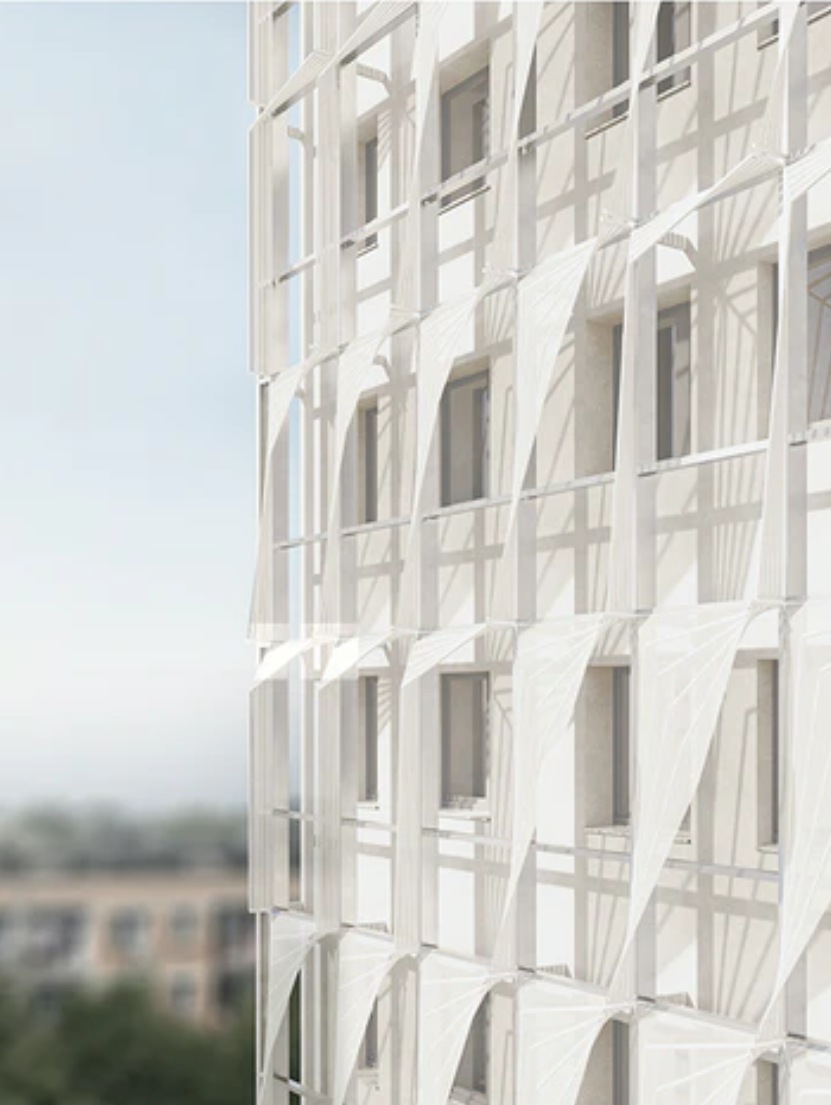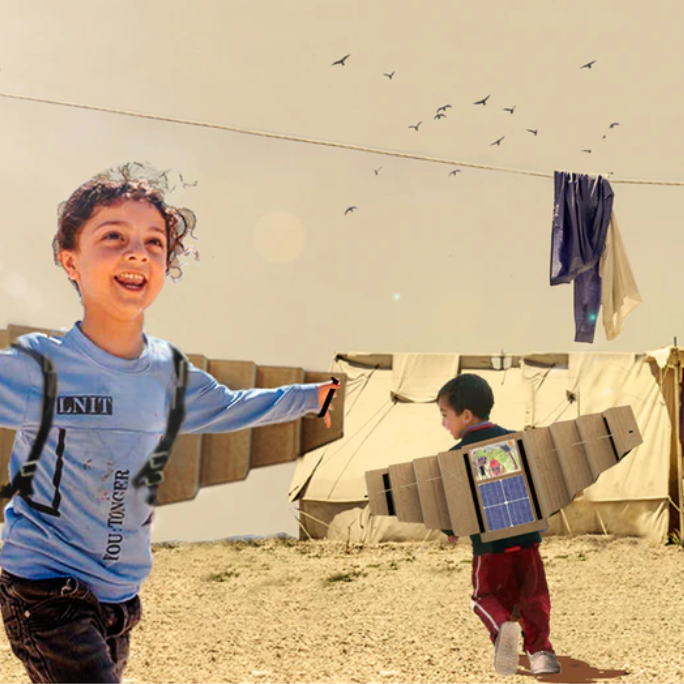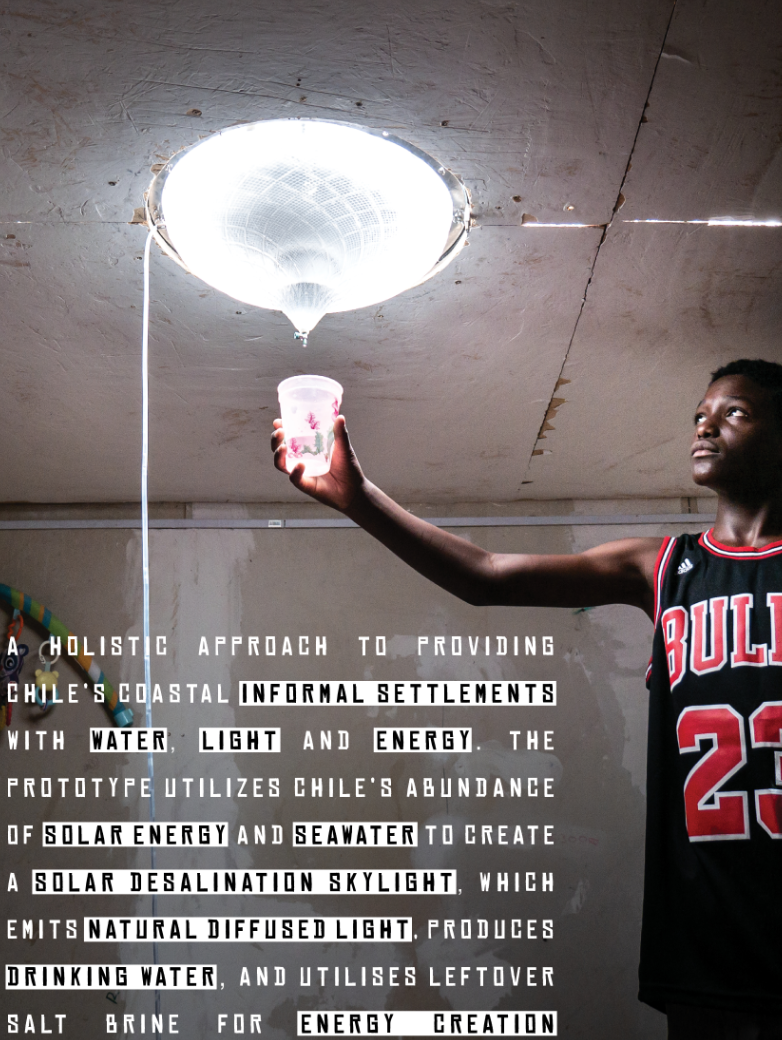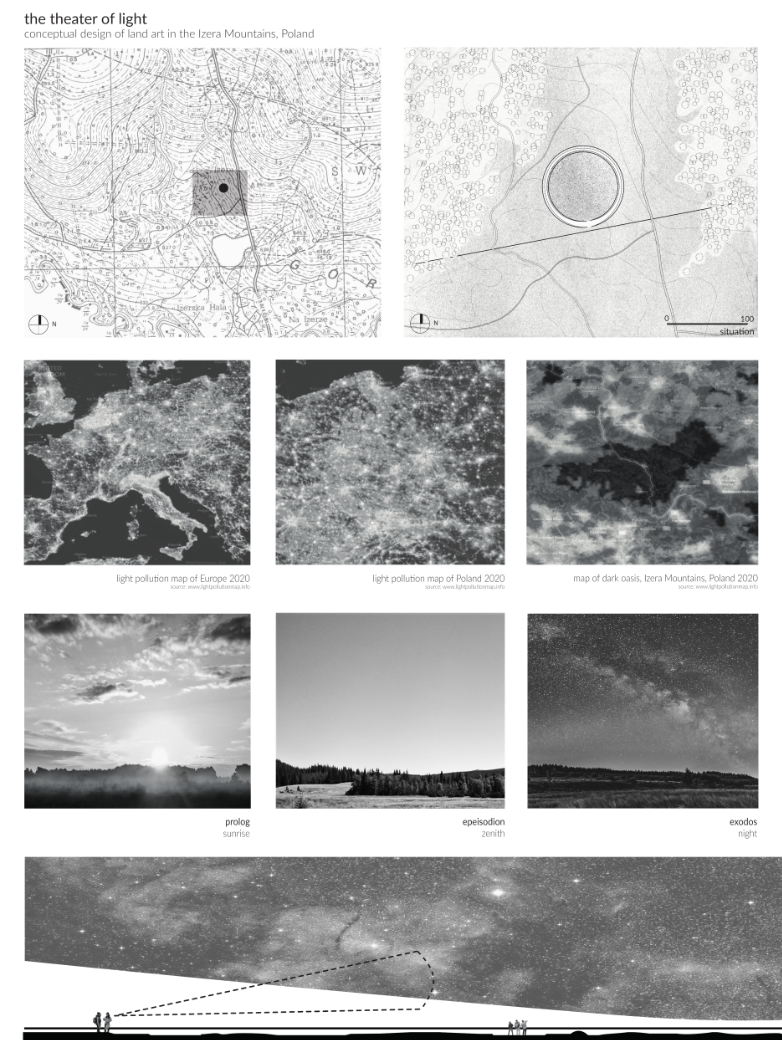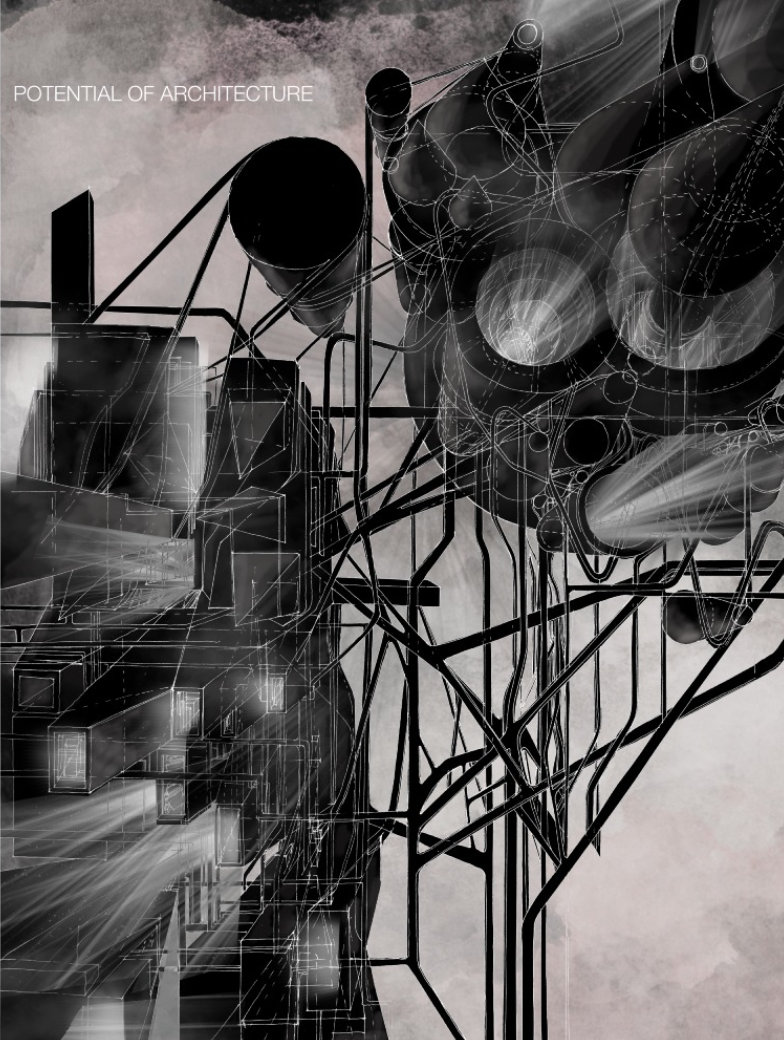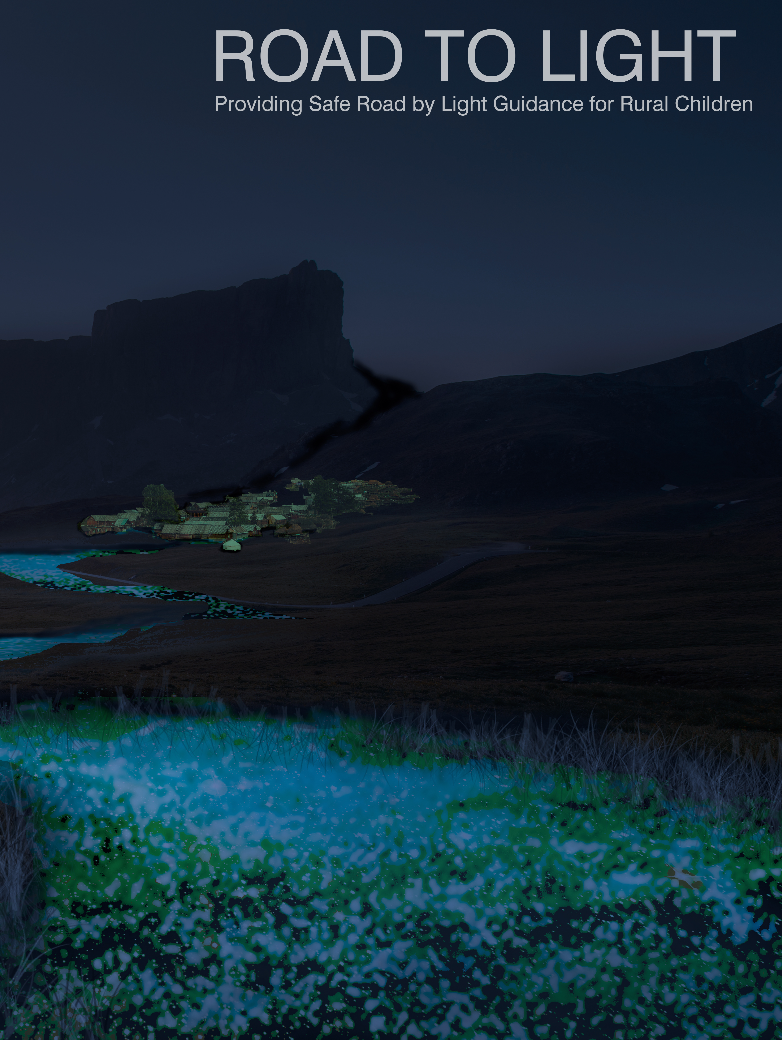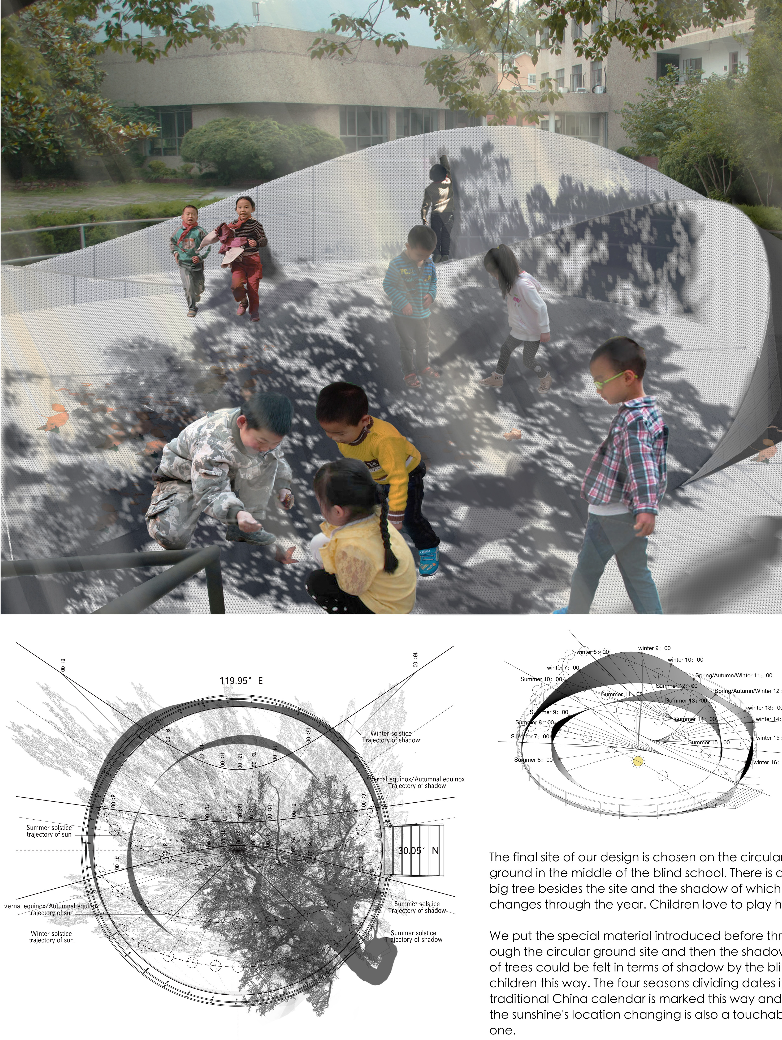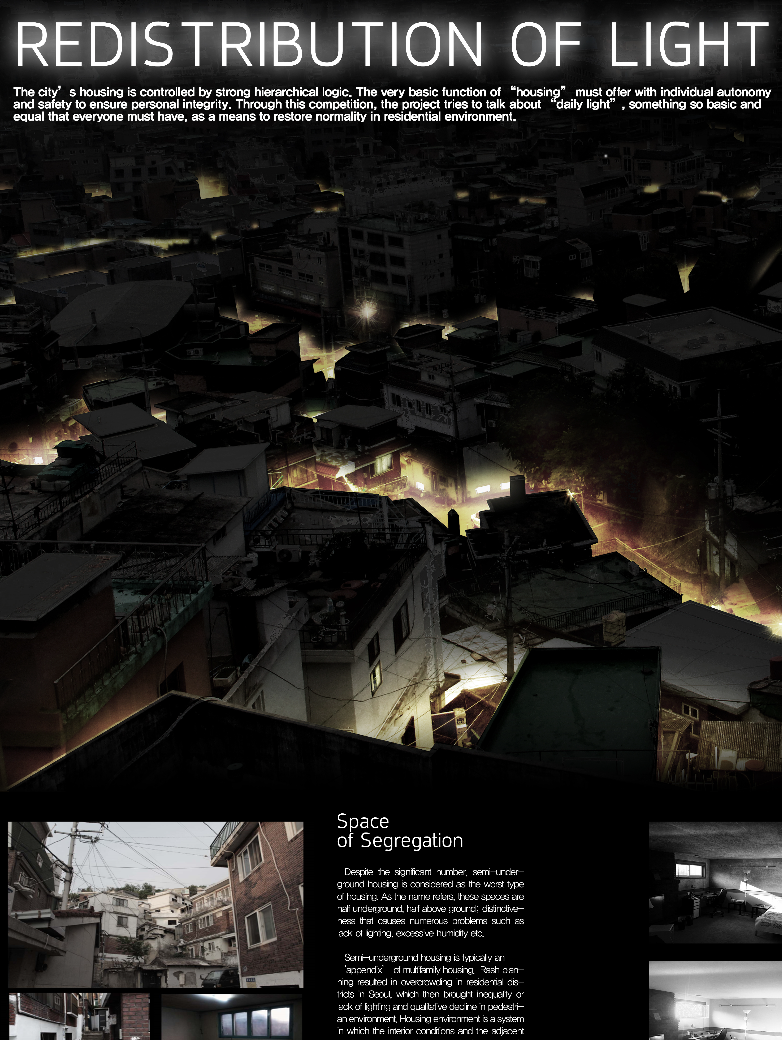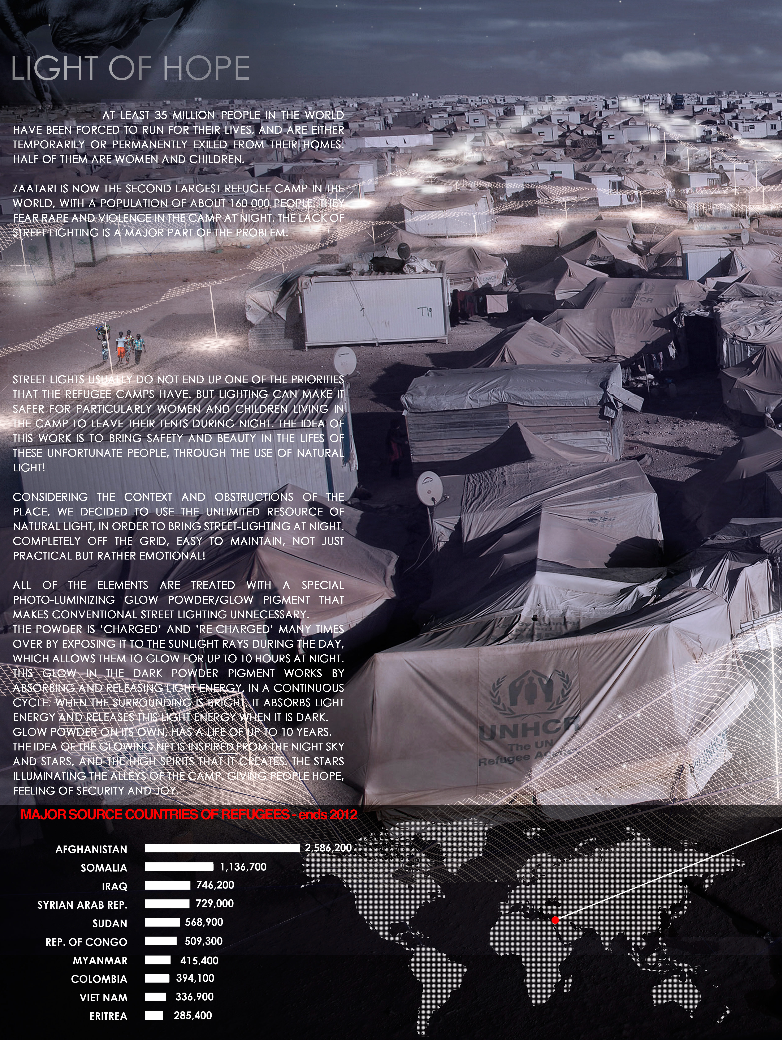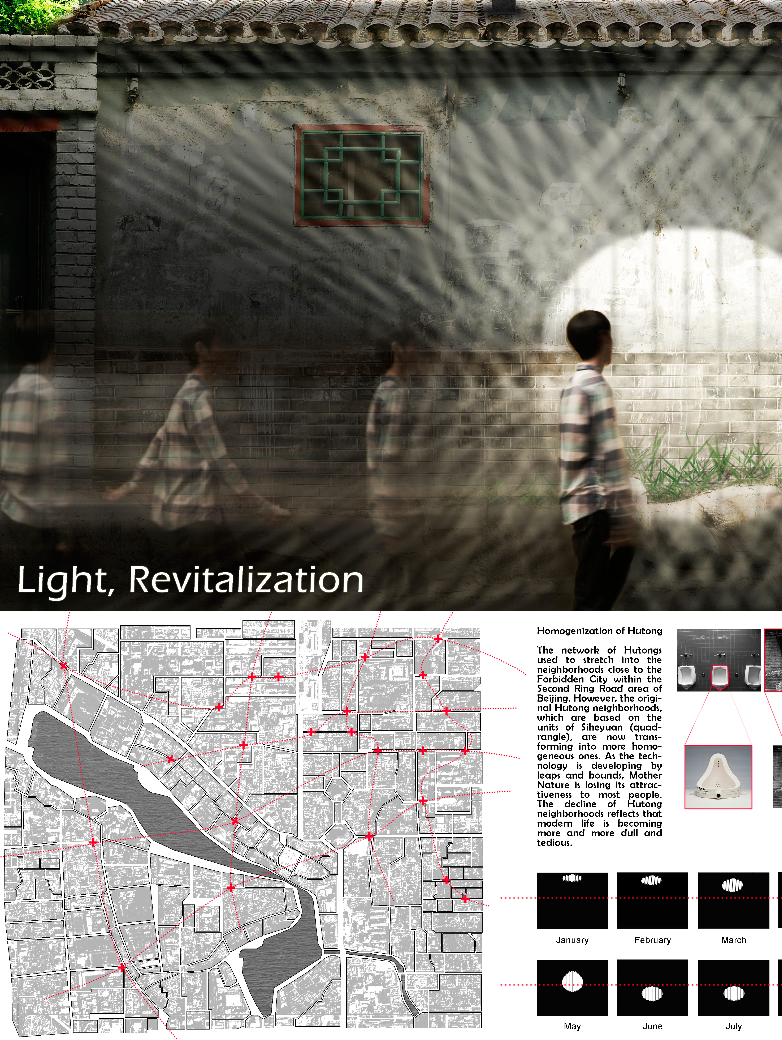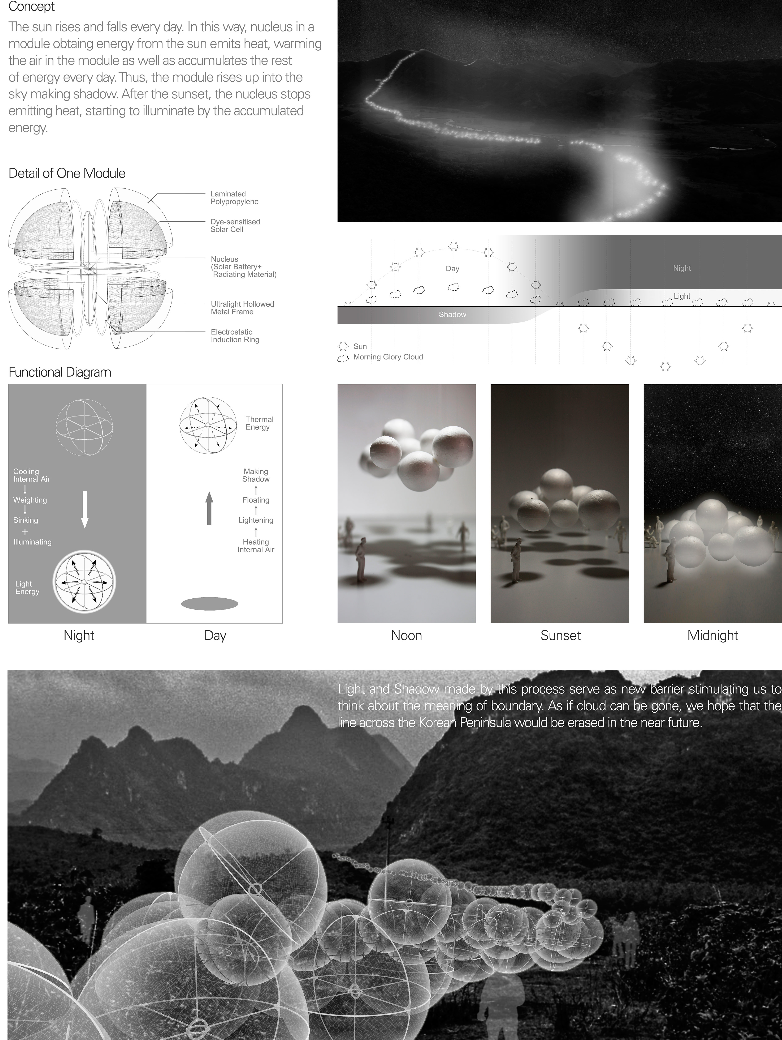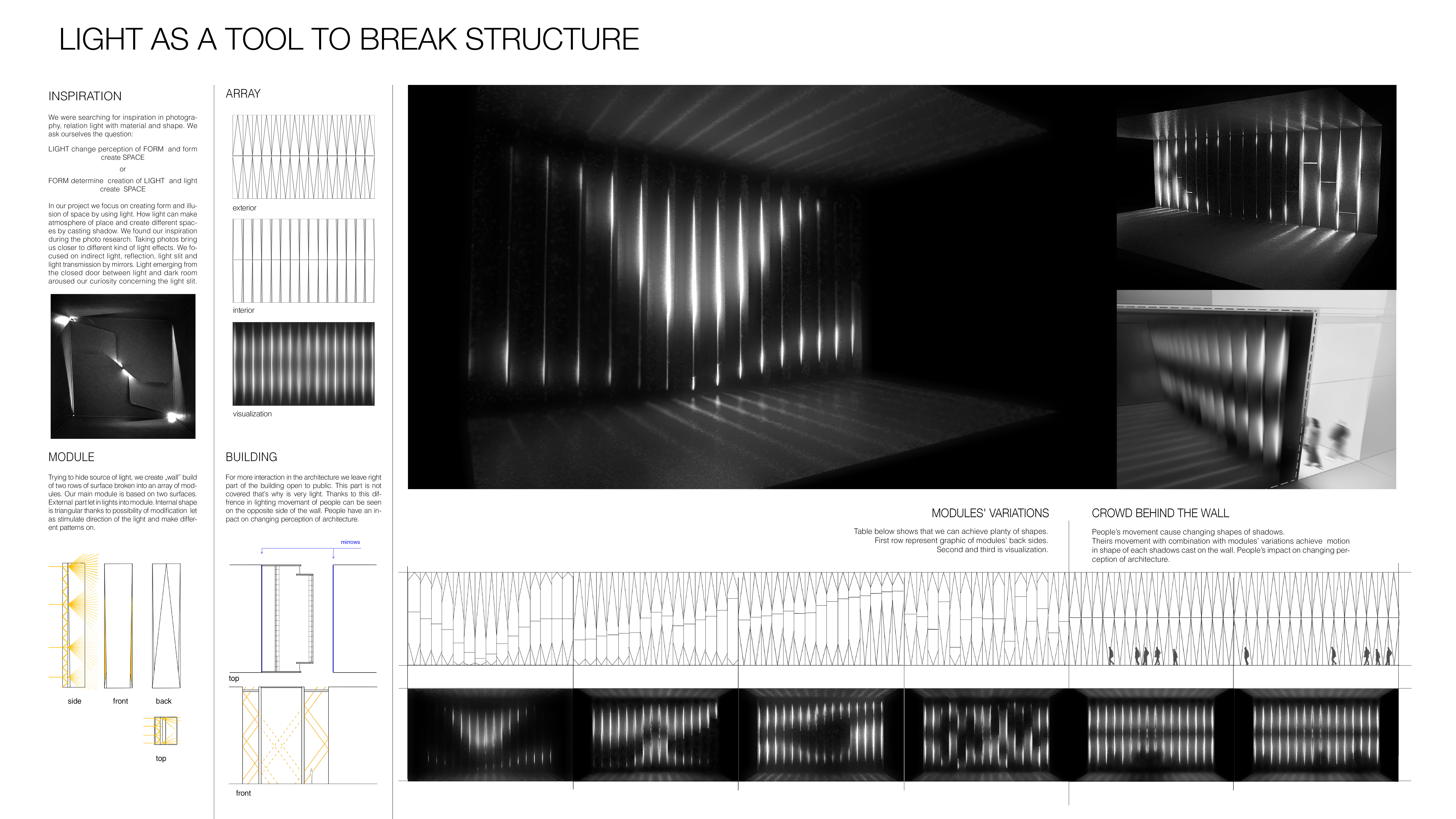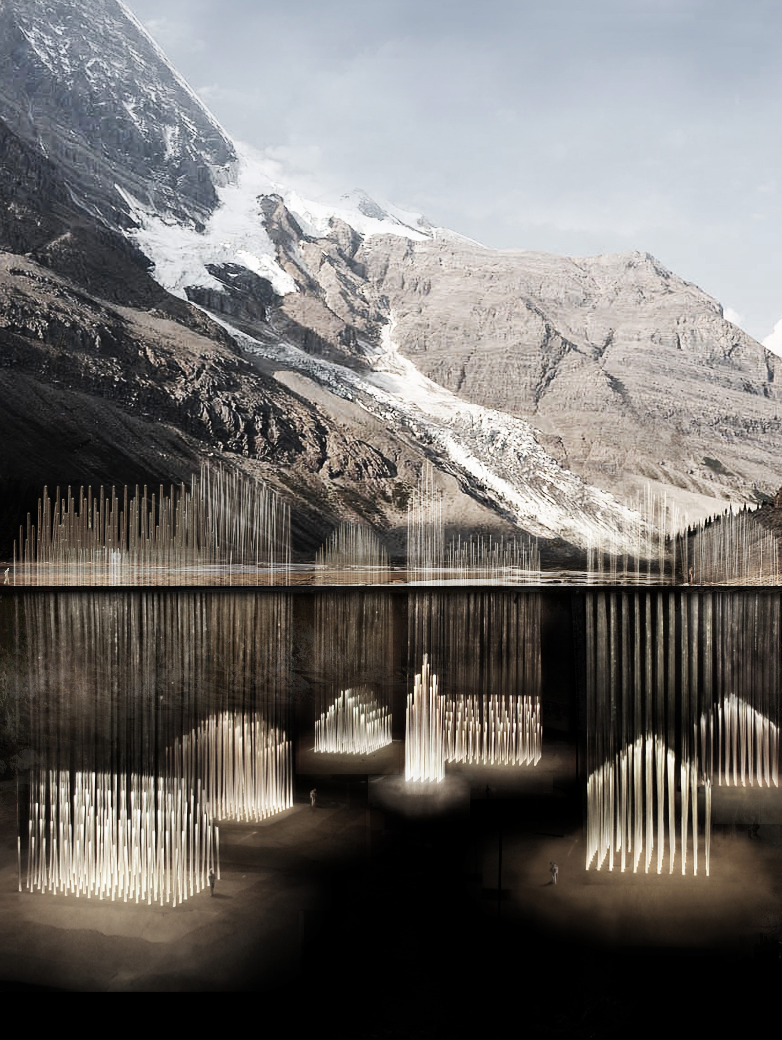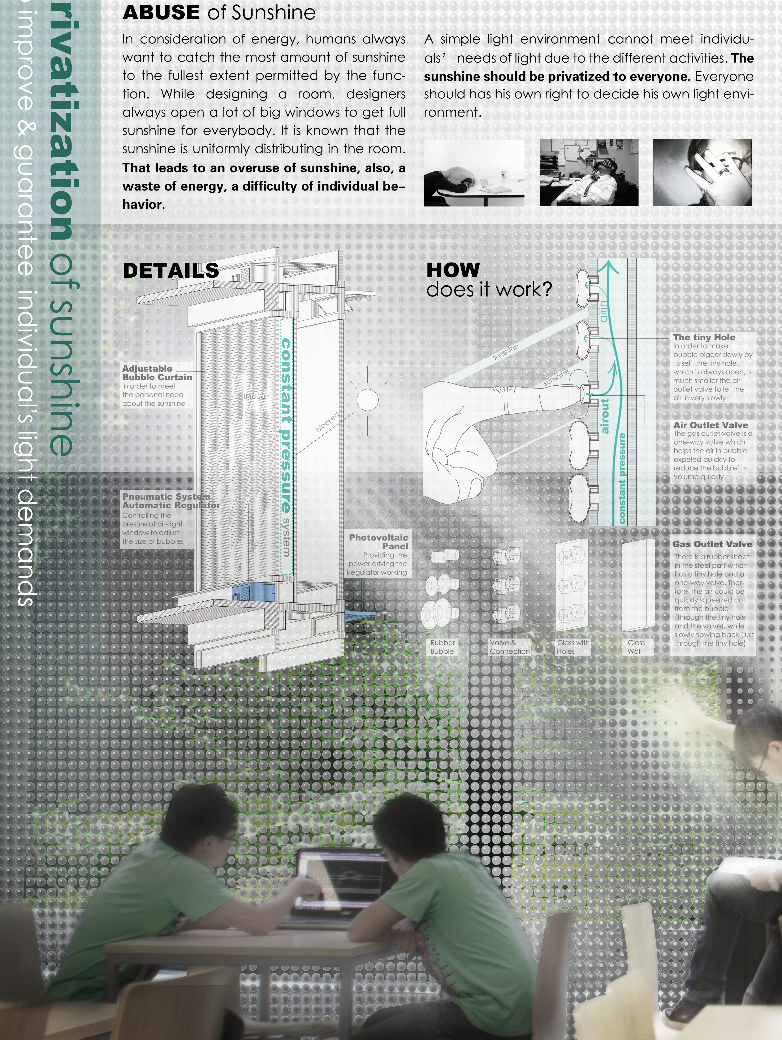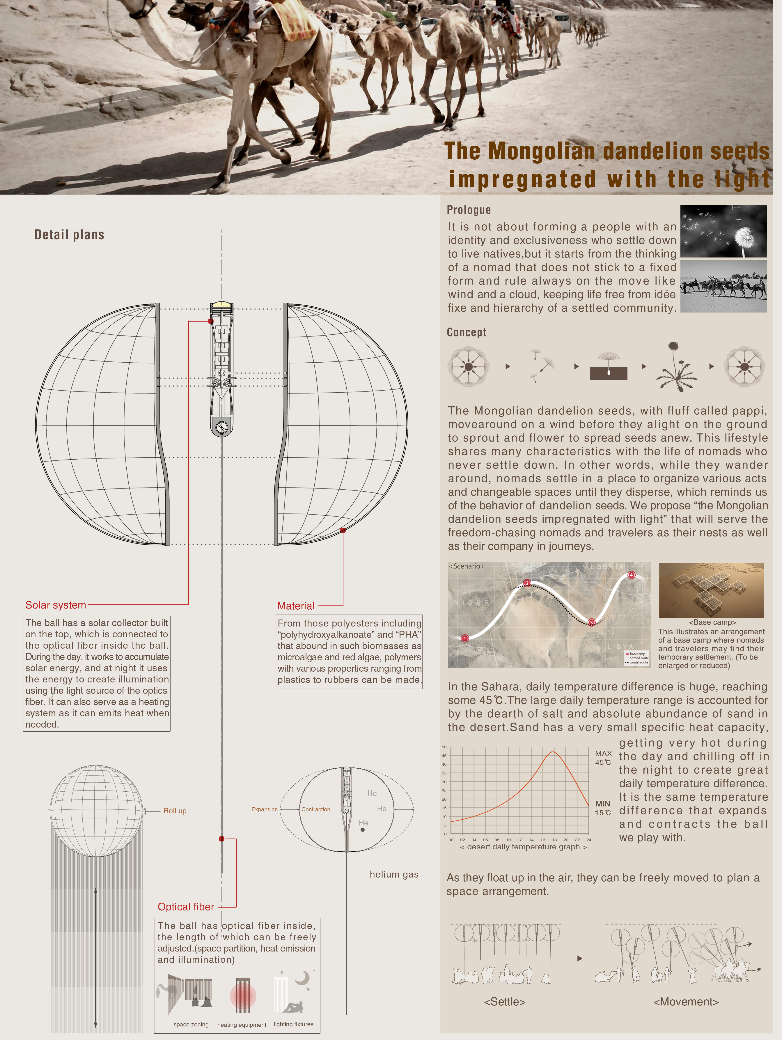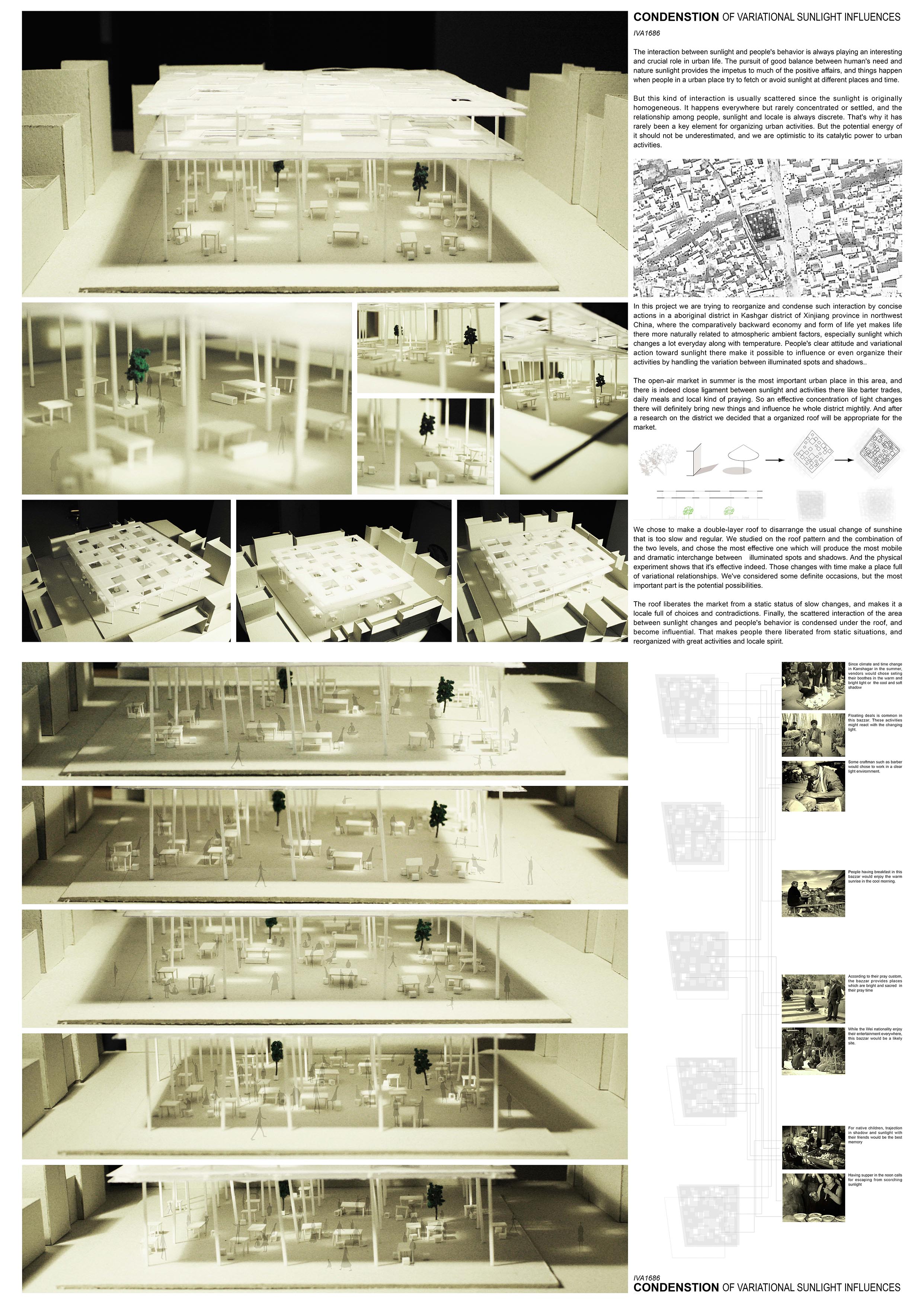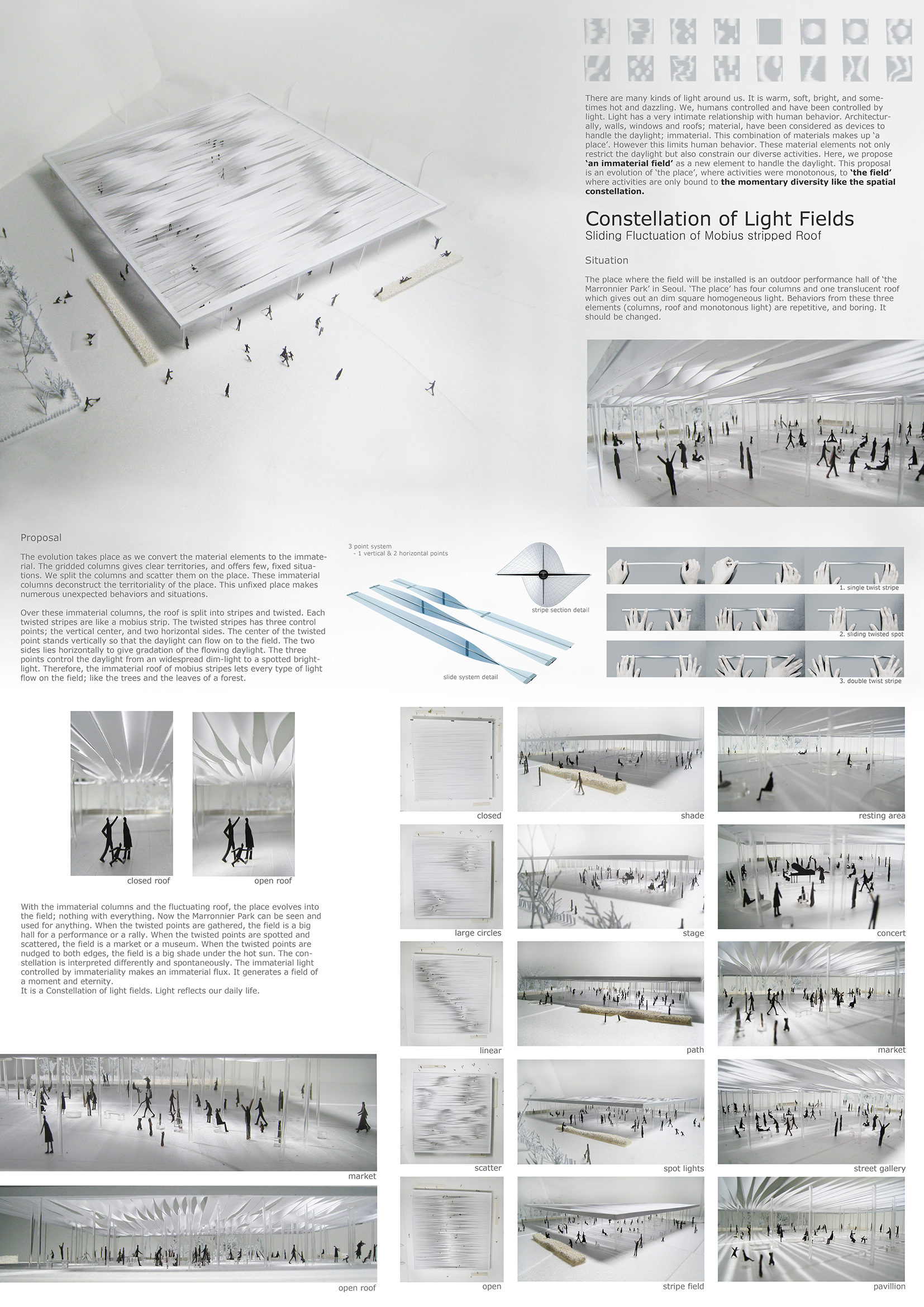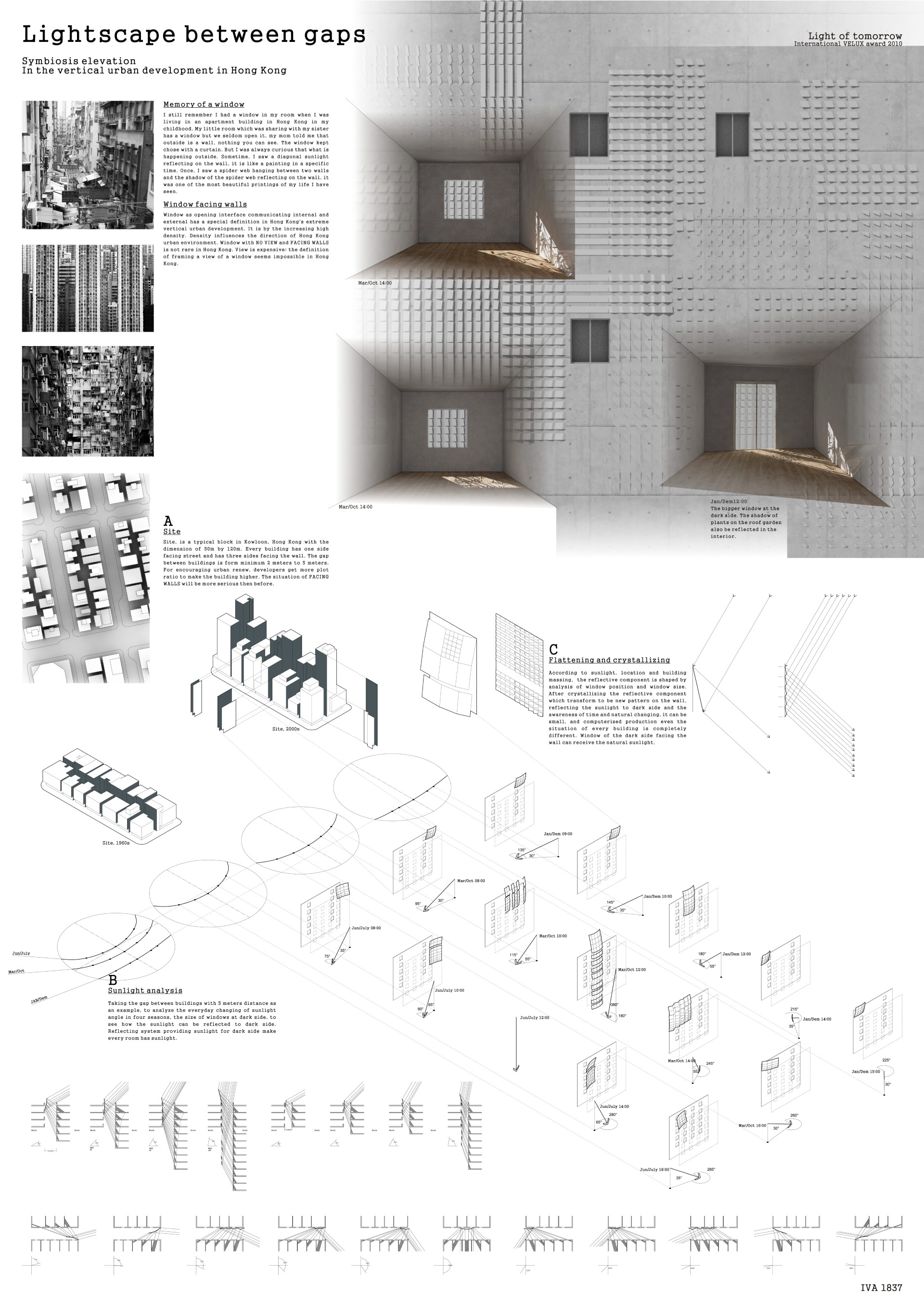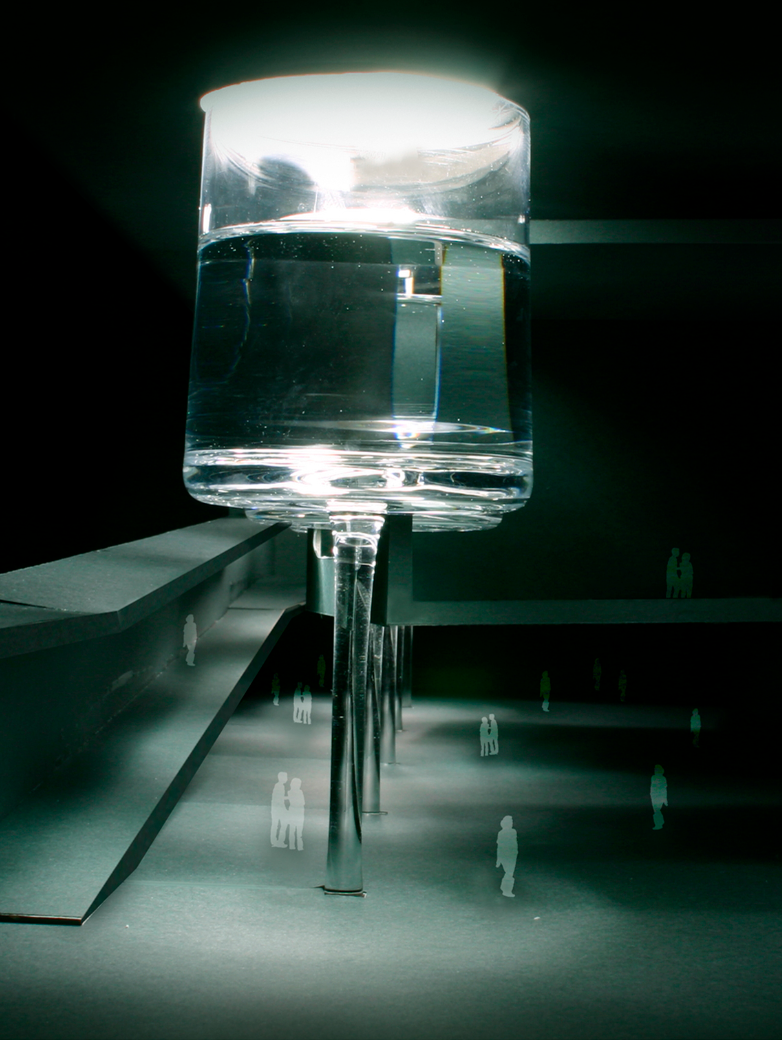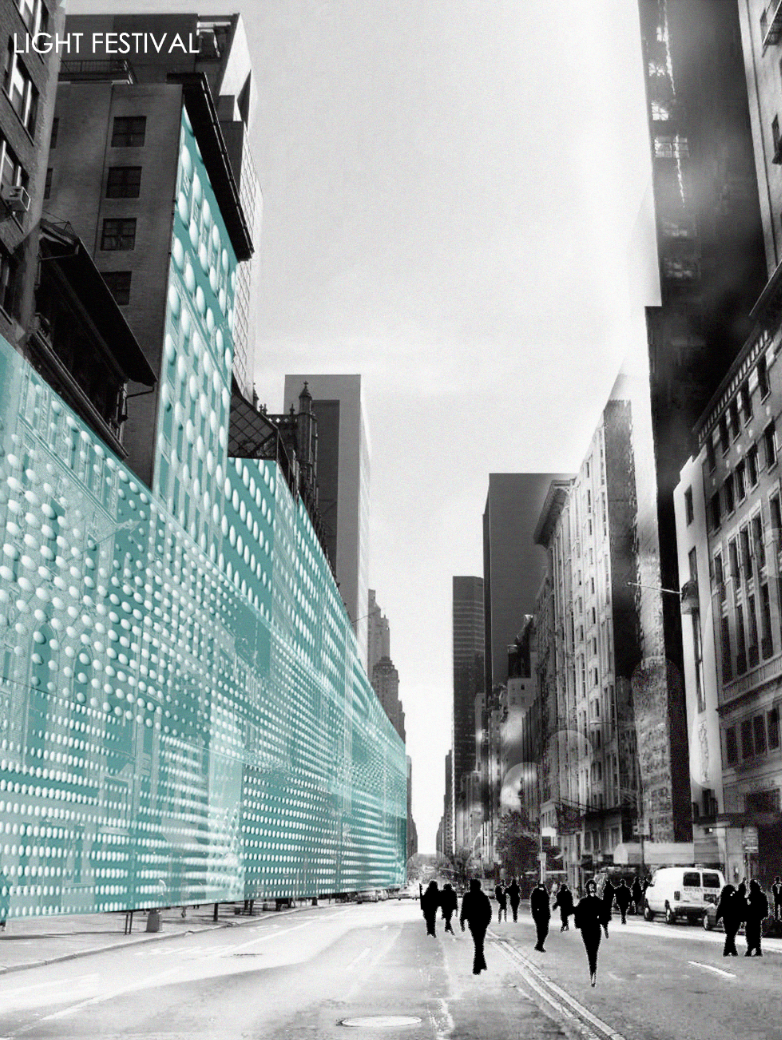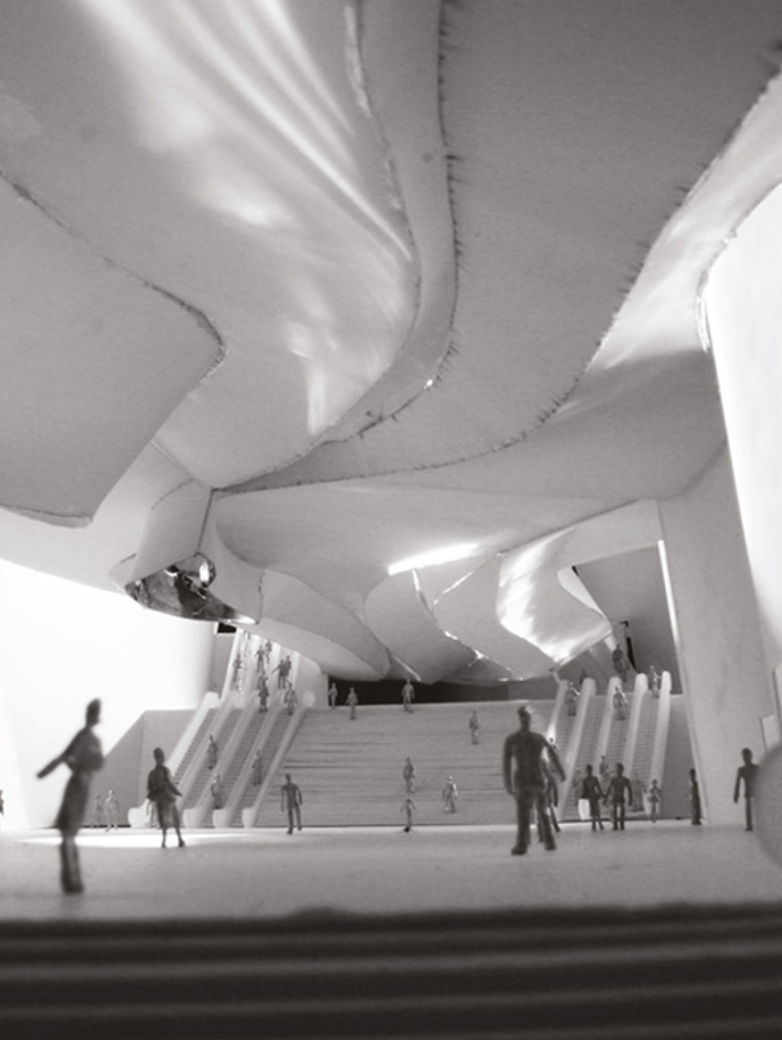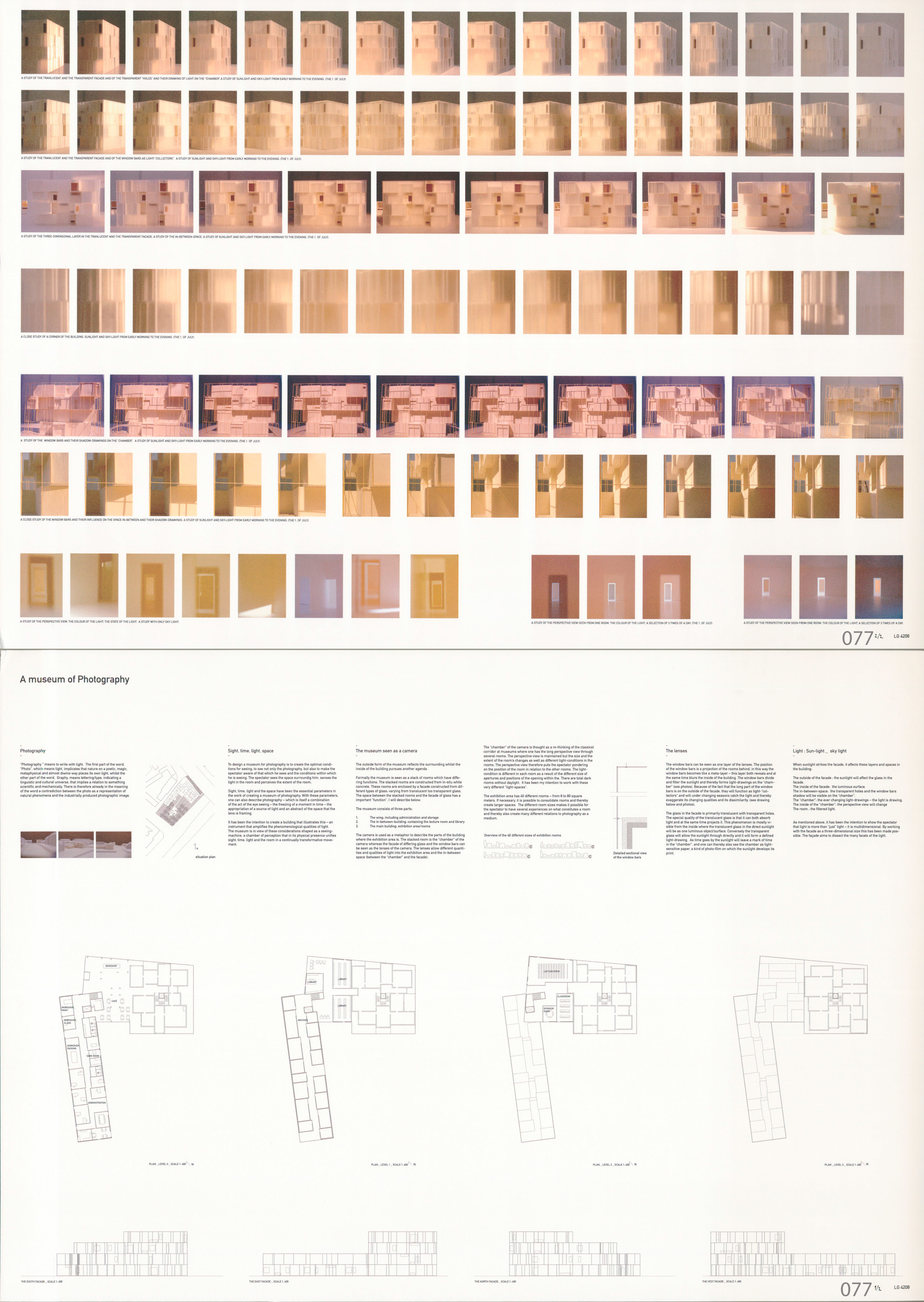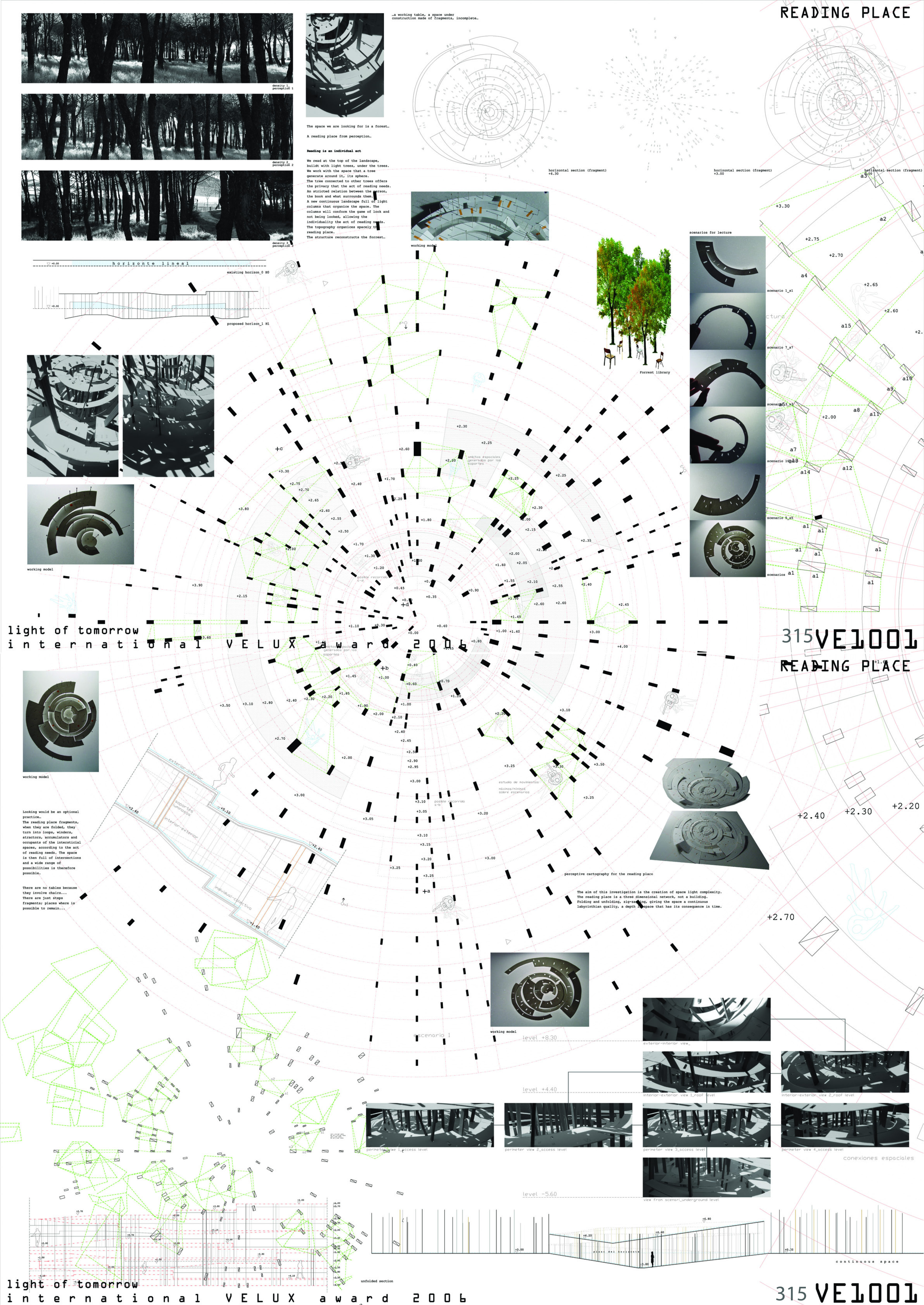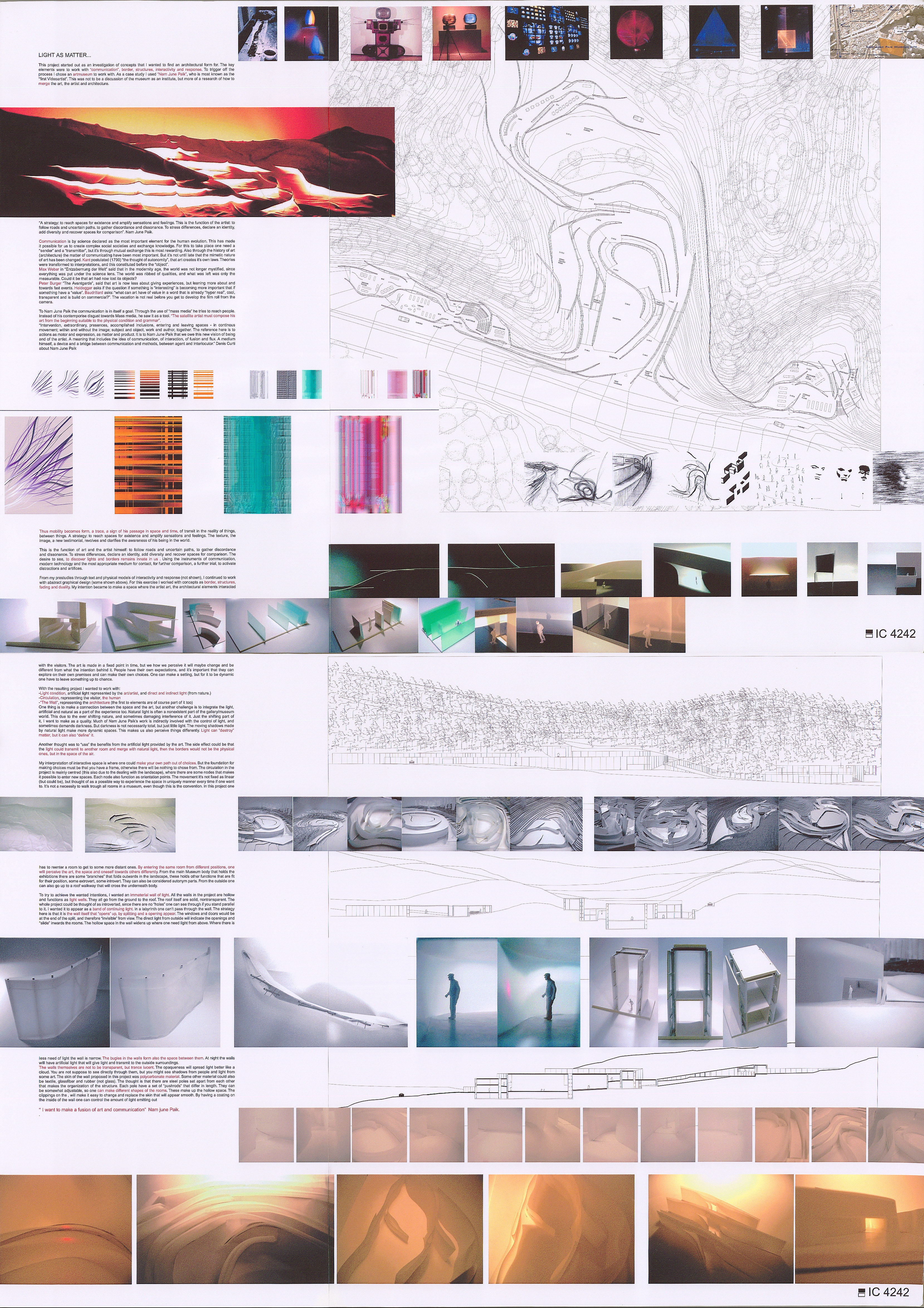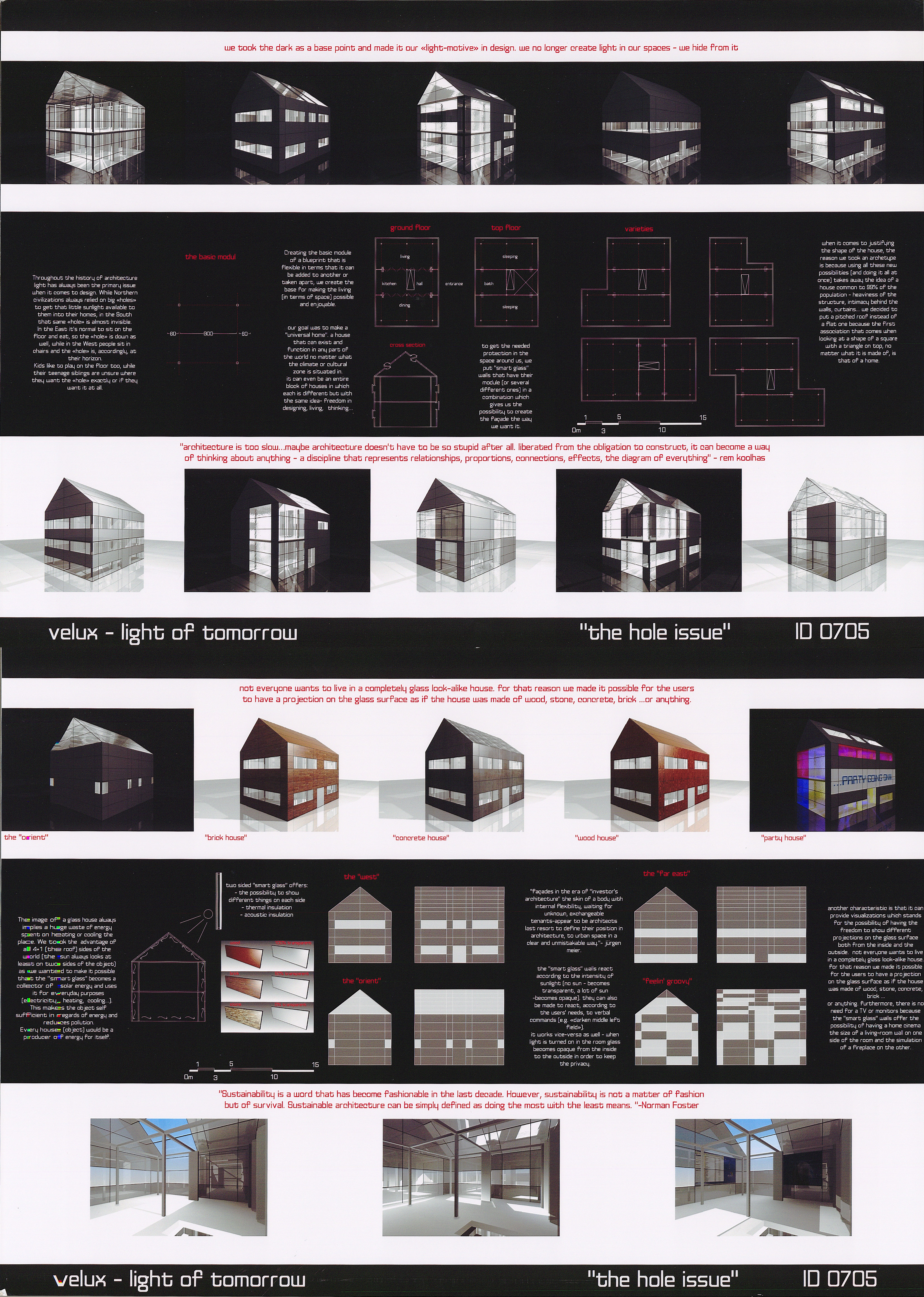2024 - Fungal Partnerships

Category
Daylight In Buildings - Region 1: Western Europe
Students
Ho Hang Sit
Teacher
David Garcia
School
Royal Danish Academy
Country
Denmark
Download
Download project board
Location: Al Ain, UAE
Project Type: Mycelium Factory and Recycling Centre
Concept: Mutualistic Relationships in Hostile Environments
Overview:
FUNGAL PARTNERSHIPS is an innovative project located in Al Ain, UAE, designed to serve as both a mycelium cultivation farm and a recycling center. This architectural intervention aims to remediate existing pollutants and reduce future waste, setting a leading example of environmentally-friendly practices in an industrial area. The project is part of a broader 25-year redevelopment plan for Al Sanaiya, an industrial zone poised for gradual renewal.
Mycelium and Sustainability:
At the heart of the design is the concept of mutualistic relationships found in nature, particularly in arbuscular mycorrhizal associations where mycelium forms symbiotic relationships with plant roots. This synergy improves resilience in challenging environments by facilitating nutrient exchange. Mycelium’s ability to establish these associations and produce fruiting bodies under favorable conditions underscores its crucial role in nutrient cycling, decomposition, and ecological balance.
Functional Design:
The recycling hall’s design addresses the harsh summer conditions in Al Ain, where extreme heat can compromise worker productivity and safety. The building operates dynamically across day and night, transforming its functions to enhance efficiency and community engagement.
Daytime Operations:
- Operational Roof: During the day, the roof level is bustling with trucks and cars unloading waste into designated chutes, ensuring efficient waste delivery.
- Skill Exchange: Workers use siesta time to exchange skills and knowledge within the recycling center, fostering a culture of continuous learning.
- Community Access: The center invites the public to pick up recycled items or mycelium sample products for free, promoting recycling and environmental awareness.
- Social Hub: The process of waste collection and item pickup transforms the indoor space into a vibrant social environment.
Nighttime Transformation:
- Leisurely Roof: As night falls, the roof level transitions into a relaxed atmosphere as trucks and recycling operations cease.
- Pedestrian Access: Car ramps become pedestrian pathways, creating a place-making environment for exploration and community interaction.
- Vibrant Nightlife: Workers enjoy the roof level’s facilities designed for leisure and social gatherings, fostering a lively nighttime atmosphere.
Architectural Features:
- Roof Design: The roof is sculpted to resemble a rugged landscape, divided into layers of sizable steps akin to natural rock formations. This design allows visitors to hike up the steps, enjoy panoramic views, or relax on broad, flat “steppings.”
- Stepping Lightwell: The steps have tiny north-facing gaps, allowing diffused light to filter through while shielding against harsh southern sunlight. These steps heat up during the day, drawing in air and dissipating odors from the recycling hall via the stack effect. At night, they cool down, providing a comfortable seating area for workers.
- Mushroom Slab Edge: Embracing urban agriculture, mushrooms are planted using recycled coffee grounds in shaded areas beneath the seating along the building’s slab edge. The cool, damp environment provided by the shade is ideal for mushroom cultivation, creating a sustainable and productive use of typically underutilized space.
Waste Management System:
- Waste Delivery: Cars drive onto the roof level and deposit waste into chutes, ensuring easy and efficient unloading.
- Ground Level Processing: Waste is collected in acoustically insulated dumpster rooms made of mycelium bricks, minimizing noise and enhancing sustainability.
- Automated Waste Transfer: An electric hatch floor opens when the dumpster rooms reach capacity, allowing waste to drop to the basement level for further processing.
- Basement Level Sorting: The waste undergoes final inspection and manual sorting before being delivered off-site for recycling or disposal.
Cultural Integration:
Inspired by the five daily prayers in Islamic culture, the project acknowledges the importance of day and night cycles in human life. It offers refuge to industry area workers during extreme heat, and the design promotes gratitude and mindfulness through its thoughtful integration with the natural environment.
Geographical Context:
Al Sanaiya, located in the foothills of the Hajar Mountains, draws inspiration from the region’s rugged terrain. The mountains, formed by the convergence of the Arabian and Eurasian Plates, create a dramatic landscape that influences the architectural design, emphasizing resilience and adaptation.
Conclusion:
FUNGAL PARTNERSHIPS exemplifies a holistic approach to sustainable architecture, combining mycelium cultivation with efficient recycling processes. The project’s innovative design enhances environmental stewardship, community engagement, and cultural integration, making it a beacon of ecological and social resilience in Al Ain’s industrial landscape.
